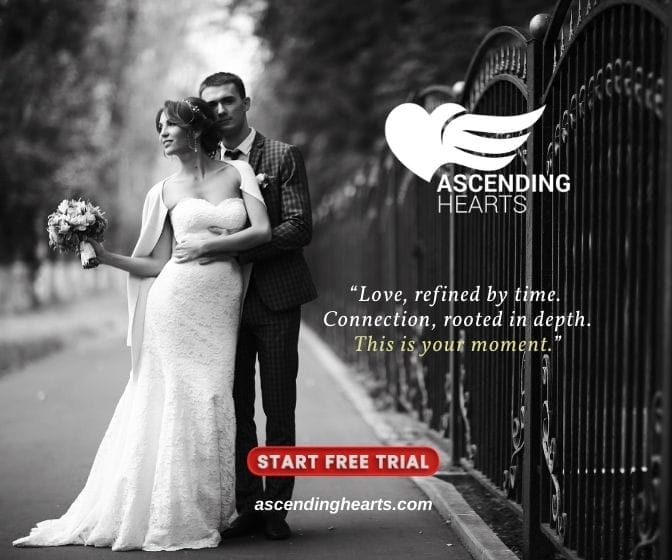Love, Relationships and Other Decisions

Wouldn’t it be wonderful if there were a simple formula, an easy-to-use algorithm that would solve all our decisions, in particular, those relating to relationships?
Making Decisions in Love and Relationships
by Joseph Bikart
It may strike you as a, particularly unromantic thought that I should classify such themes as love and relationships within decision-making. After all, shouldn’t love just to happen, rather than being a matter of choice?
Shakespeare understood the intricate and deeper layers of love when he wrote in Romeo and Juliet (Act I, scene 1):
“Love is heavy and light, bright and dark, hot and cold, sick and healthy, asleep and awake – it’s everything except what it is!”
If love creates such exacerbated and passionate feelings (from pathos, the Greek word for ‘suffering’), it may be precisely because it is never simply ‘bright’ or ‘dark,’ never so clear cut. Love and relationships may be exciting precisely because they are the locus of a permanent question, of a permanent tension between opposites.
Aristotle, back in the 4th Century B.C., defined virtue as “a disposition to behave like a mean between extremes of deficiency and excess.” The mean for Aristotle is the opposite of both extremes, and we reach excellence through the habit of seeking and finding this mean between all the extremes in our lives.
Love and relationships are therefore soul-enhancing parts of our lives as they pose this permanent question (Heavy or light? Bright or dark? Etc) and require our ongoing positioning between both extremes. Love is a permanent decision.
We all know that love and relationships can also be areas of “stuckness” in our lives. We may end up either paralyzed by the lack of connection (as evidenced by the proliferation of dating apps), or by the strong feeling of inadequacy in a relationship from which we find it hard to extricate ourselves.
Sometimes, this feeling is rendered more complex when we cannot even identify what we truly want. In Stephen Sondheim’s musical “Into the Woods,” one of the characters asks: “Are you sure that what you wish is also what you want?” In relationships and many other areas of decision-making, different parts of us may want different things.
Wouldn’t it be wonderful if there were a simple formula, an easy-to-use algorithm that would solve all our decisions, in particular, those relating to relationships? This is what Sigmund Freud, the father of psychoanalysis, had to say on the subject:
“When deciding minor importance, I have always found it advantageous to consider all the pros and cons. In vital matters, however, such as the choice of a mate or profession, the decision should come from the unconscious, from somewhere within ourselves. In the important decisions of personal life, we should be governed, I think, by the deep inner needs of our nature.”
In this context, it is essential to think of what drives us towards relationships.
According to the Jungian psychoanalyst James Hollis, the yearning to return to a mythical paradise is “the primary motive, the hidden agenda in any relationship.”
We may regard as particularly ill-omened the fact that our very first decision as human beings back in Eden, was the Original Sin – not the best start to a life of independent decision making! However, Schopenhauer regarded the original sin as our original design: through breaching the tacit contract with God, it marks the start of our autonomous lives outside the Garden, even if it comes with the yearning to return!
In my mind, this is not limited to the relationship between two people. It also describes our relationship with ourselves. As the psychologist, Dr. Tim Pychyl asserted, one of the explanations for indecisiveness and procrastination is the poor relationship between us and our future selves. Neuroscience has shown that procrastinators demonstrate a lack of “future self-continuity,” favoring the demands of the present self over the needs of the future self.
But let’s return to Eden for a moment. It is also the place of God’s first question. In Genesis 3.9, God asks Adam: “Where are you?” In biblical Hebrew, the question is even shorter, just one word: Ayeka?
Naturally, we can assume that God knows full well where Adam is physically hiding: his question is essential.
This is the question we should also ask ourselves when we struggle with our decisions and end up hiding behind the comfort of procrastination. Where are we in our lives, whether in our careers, in our relationships, our friendships, as well as our spiritual and intellectual growth?
Put differently; I don’t believe that there are many fundamentally complicated decisions. However, I think there are fundamentally complicated humans. And this description applies to all of us, whether seldom or often. Therefore, we need to locate the self wherever it is stuck and reignite the engine of our volition.
In The Art of Decision Making, I have endeavored to track the self through the nooks and crannies of our most challenging decisions. It may be stuck in any of the six chambers that make up what I describe as the COSARC pyramid:
1. Creativity: Did you employ enough lateral thinking when envisaging not only your options but also your objectives?
2. Options: Have you considered the consequences of each option? And do you know which parts of you may want different things?
3. Selection: How do you operate this critical step which will cut you off from other possibilities?
4. Action: How do you commit to your preferred choice and evacuate doubt from the equation?
5. Resolve: Can you avoid the pull of potential regrets and stick with your decision without being side-tracked by any distractions or difficulties?
6. Completion: How can you lead your decision through this ultimate step, without either giving up too early or dwelling in this last step so long that its completion is delayed endlessly?
Identifying our precise location and re-energizing our volition is the keys to decision making. Succeeding in this endeavor leads us to the realization that the most important question isn’t how we, as human beings, can become better decision-makers. It is instead: how we, as decision-makers, can become better human beings.
Click HERE to Connect with your Daily Horoscope on OMTimes!
You will also enjoy Say “No” To Unconditional Love
About the Author
Joseph Bikart is a founding member, founding partner, and director of the international consulting firm Templar Advisors. For the past 20 years, following a first career in investment banking, he has advised leaders in corporate and public life on their communication and negotiations. Through his work with thousands of decision-makers, he has created Decisiology, an innovative approach to executive coaching, drawing from his studies at the Institute of Psychoanalysis and the Tavistock in London. He is also a keynote speaker and a lecturer at the London Business School. templaradvisors.com
OMTimes Magazine is one of the leading on-line content providers of positivity, wellness and personal empowerment. OMTimes Magazine - Co-Creating a More Conscious Reality





